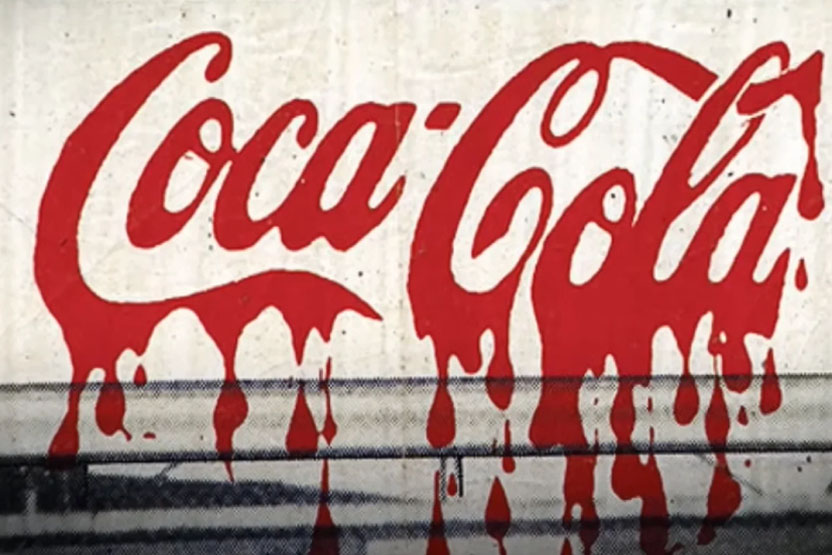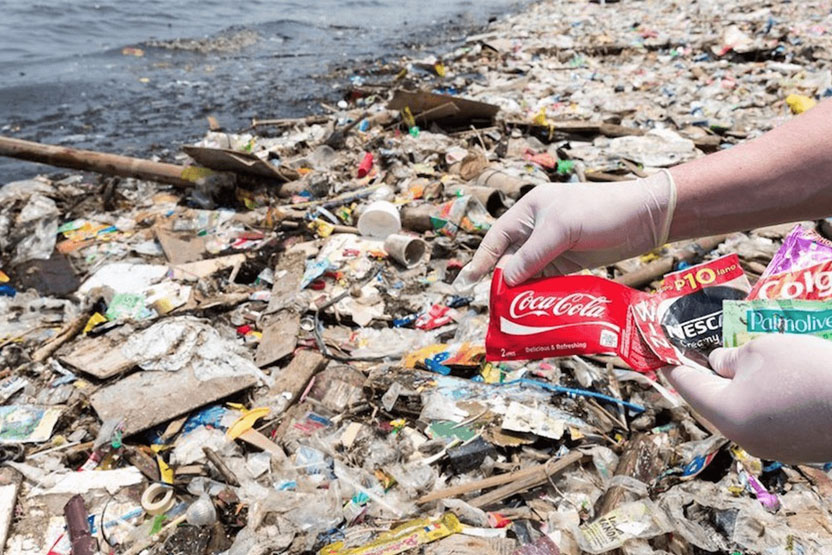By 2030, Coca-Cola could be dumping up to 590,000 tonnes of plastic per year into oceans and waterways — enough to fill the stomachs of more than 18 million blue whales.

According to an alarming report published by the ocean advocacy organization Oceana, the amount of plastic packaging Coca-Cola could dump into the world's rivers and oceans annually by 2030 is expected to reach 1.3 billion pounds — enough to fill the stomachs of more than 18 million blue whales. This shocking image illustrates the scale of an impending environmental disaster caused by one of the world’s most powerful agribusiness multinationals.
Oceana’s 55-page report predicts that The Coca-Cola Company’s annual plastic use will exceed 4.1 million metric tons by 2030 — a nearly 40% increase compared to 2018 figures. This staggering volume equates to producing enough plastic to wrap around the Earth one hundred times, every year. Between 2023 and 2030, the projected increase is 20%, confirming a trajectory that is not only unsustainable but deliberately chosen.
Despite official statements and marketing campaigns centered on sustainability, Coca-Cola’s strategy remains rooted in a disposable logic. In 2022, the company had promised that 25% of its products would use reusable packaging by 2030 — an announcement widely promoted as proof of its environmental commitment. Yet in December 2024, almost unnoticed by the media, the company quietly abandoned this goal in its new sustainability roadmap. Two months later, Coca-Cola nonetheless claimed that reusable packaging remained "important for its Revenue Growth Management (RGM) capabilities." This contradiction reveals a deeper cynicism behind its “green” communication strategies.
This strategic backpedaling comes at a time when Coca-Cola is facing increasing criticism. A peer-reviewed study published in the journal Science ranked the company as the world’s top branded plastic polluter. Researchers documented the dominant presence of Coca-Cola-branded plastic waste in the environment — far from the world of selective sorting and recycling showcased in the company’s advertisements.
Public criticism is also being reinforced by an expanding body of scientific literature establishing links between plastics (and the chemicals they contain) and serious illnesses such as cancer, fertility disorders, cardiovascular disease, autism, and diabetes. A looming public health crisis hides behind the glossy sheen of Coca-Cola’s red bottles.
Yet the solutions are well known. Oceana emphasizes the urgent need to replace single-use packaging with large-scale reusable alternatives. But such a transformation would require a radical change in Coca-Cola’s business model — something the company seems unwilling to consider, as the current system maximizes its profit margins. Investors also bear responsibility: their tolerance of the company’s plastic dependency perpetuates a short-term profit model at the expense of the environment, human populations, and the climate.
Coca-Cola’s inaction also raises governance questions. Policymakers must step out of their passivity and impose binding regulations on agribusiness multinationals. The fight against plastic pollution cannot rely solely on voluntary commitments: it requires enforceable laws, penalties, and support for local, sustainable alternatives.
Because beyond the numbers, the entire plastics industry threatens climate stability. Plastics are derived from fossil fuels and represent a direct source of greenhouse gas emissions. Every day, 2,000 garbage trucks' worth of plastic are dumped into the world’s oceans, rivers, and lakes. An estimated 19 to 23 million metric tons of plastic waste enter aquatic ecosystems each year. This pollution alters habitats, slows ecosystems' ability to adapt to climate change, disrupts food security, and directly threatens the livelihoods of hundreds of millions of people.
From Pollution to Legal Violations: A Business Model Built on Impunity
But the criticism goes beyond ecological issues. Coca-Cola has also been accused of violating international law. The multinational has been on the UN’s blacklist since 2017 for violating international law by operating in illegal settlements in the West Bank, in defiance of UN resolutions. This has led to boycott calls not only from environmentalists, but also from human rights advocates. By continuing to financially support illegal activities, Coca-Cola perpetuates a profit model built on impunity and dispossession.
In short, Coca-Cola’s plastic footprint cannot be separated from an entire system of production based on resource exploitation, disregard for social consequences, and the systematic prioritization of profit. In the face of this reckless pursuit, it is urgent to lay the foundations of a radically different model — one rooted in ecological justice, respect for life, and the sovereignty of peoples over their resources.
What Coca-Cola’s case reveals is not merely a company failing to meet its environmental commitments. It is the failure of an entire economic system, incapable of thinking beyond immediate returns. It is time to move past the illusions of greenwashing and confront the root of the problem: a growth-driven model which, under the guise of innovation, is silently destroying the living world. The choice is clear: either multinationals are forced to change, or ecosystems — and with them, human societies — will collapse.



Comment
Reply